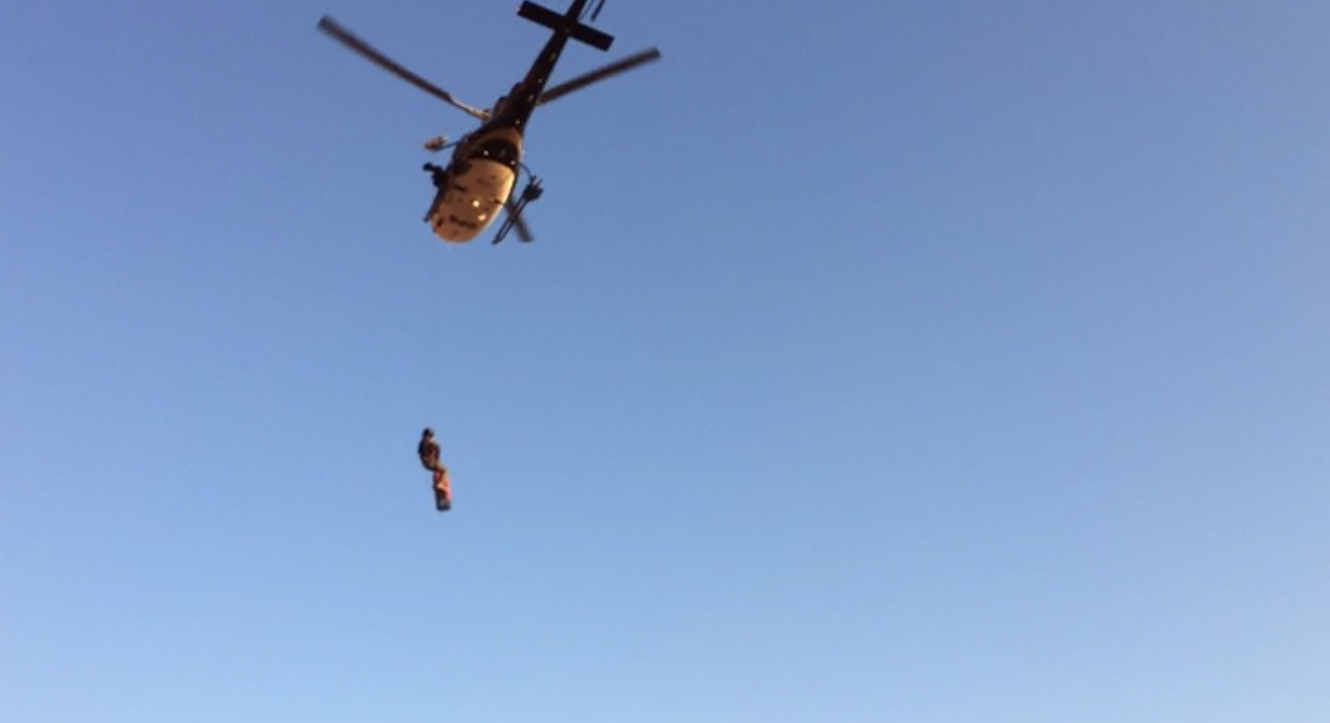
Case Study: Jellyfish Sting in Paradise
You and your friend are enjoying some early morning sunshine and perfect waves while surfing on the Pacific Ocean. While waiting for the next break, ...


You and your friend are enjoying some early morning sunshine and perfect waves while surfing on the Pacific Ocean. While waiting for the next break, ...

While climbing in Greece with a friend, you witness another climber takes a fall. She swings hard, feet first, into the wall. The rope stops her, but ...

You witness someone fall from a horse; they are unresponsive. How do you use your Wilderness Medicine skills in this situation?

After a strenuous hike, you and your team find a tent just off the trail at 11,300 ft. You call out, “Hello, is anyone in the tent? This is search ...
Editor’s Note: This case study was updated in 2024.
You are on a Search and Rescue (SAR) team of Wilderness First Responders (WFR) hiking the rugged Bear’s Ears Trail into the Wind River Range looking into a vague report of a “very sick person” camped “near the trail near tree line”. The report came in at midnight. Your team’s role is to sweep this trail in the dark in the hopes of finding out exactly what is going on. A second group is gathering to hike up the trail later in support.




Test your wilderness medicine skills to see how you would respond to this first-aid scenario.

Your hiking partner slips on a snowy slope and slides head-first into a tree. What do you do next?

On a paddling trip in Big Bend National Park, a participant starts having leg spasms. What do you do?

A student gets a hot water burn deep in the backcountry. What do you do?

See what you would do to respond to and treat a possible snakebite.

A climber collapses at the crag. What do you do next?

What would you do to help a patient with hypothermia while winter camping?

A skier hits a terrain feature and goes flying. They land hard and don't immediately reply when you ask if they are ok. How do you respond?

Test your wilderness medicine skills with this case study!

Test your wilderness medicine skills with this case study! You are guiding a 7-day wilderness trip. One of your participants, Stan, is an ...

Two days into a picture-perfect autumn backpacking trip in the Wind River Mountains, your companion slips and falls on rocky terrain. His chief ...

Test your knowledge with this case study about a patient with an ankle injury on a backcountry hunt.

Test your knowledge with this case study about a patient having breathing difficulty in a remote mountain setting

This case study focuses on how responders must be creative and thoughtful to adapt plans as they care for patients on a wilderness—not city—timeframe.

At 6:30 in the morning some of your participants come and tell you that their tentmate is complaining of abdominal pain. As the WFR-trained course ...

Five days into sea kayaking with friends in Prince William Sound, Alaska you feel lousy; some diarrhea, some vague abdominal cramping, not much ...

You and a friend are on a long run in the foothills of the Laramie Range in Wyoming. It’s a hot day. Four hours into the run your companion stumbles, ...

A trip participant has trouble on a rappel. When they are safely on the ground, you begin your patient assessment. Test your wilderness medicine ...

When symptoms are hard to define, the skills of decision-making and problem solving become more important. Test what you know in this case study!

Do you know how to prevent, recognize, and treat a non-freezing cold injury (NFCI)? Test your wilderness medicine skills with this case study.

Do you know the proper protocols for a patient with a suspected spine injury?

Do you know how to test an ankle injury for usability?

Do you know how to prevent, recognize, and treat a non-freezing cold injury (NFCI)? Test your wilderness medicine skills with this case study.

This case study tests how well you can adapt when your patient has a potential life threat.

This case study tests how well you can adapt when you're responsible for not just one patient, but an entire group.

Test your wilderness medicine knowledge with this case study about a patient with flu-like symptoms that may be related to a tick-borne illness.

You're a first responder helping a patient who was bucked off their horse. The assessment might reveal something more troubling than what meets the ...

Test your knowledge about caring for patients who may have head injuries with this wilderness medicine case study.

Test your knowledge with a case study based on a real event in the '80s where Wilderness First Responders aided a hiker suffering from weakness and ...

The patient commented that their toes have been cold and numb all day, but thought they could get by until getting into their sleeping bag. Read the ...

The patient is a 30-year-old complaining of fatigue, dizziness, and a headache—how will you respond? Test your knowledge with this case study.

You find a hiker who you think might be suffering from altitude illness - after introducing yourselves, and with the patient's permission, you and ...

Test whether you know what to do in this case study of a storm brewing and a nearby lightning strike.

Test how you would respond to possible frostbite with this wilderness medicine case study.

You are a member of your community’s Search and Rescue team. You and an EMS team are responding to the scene of a BASE-jumping accident…

A bear encounter leaves you with some first aid to perform, including confirming scene safety and caring for your patient.

Practice your skills with this case study about a patient who may be experiencing a cardiac episode.